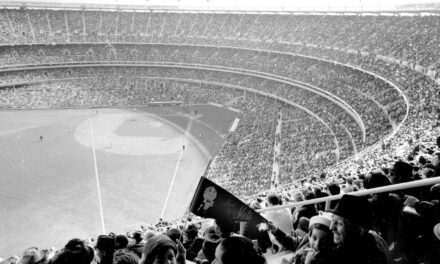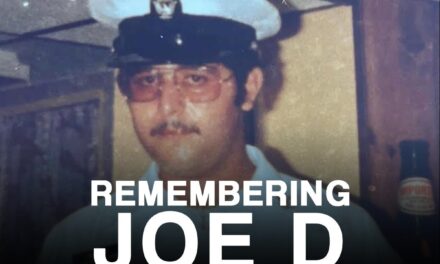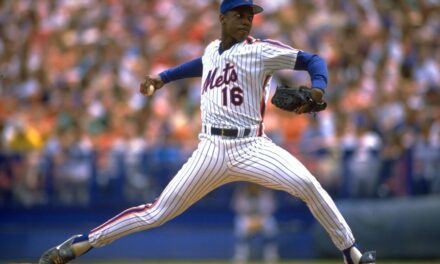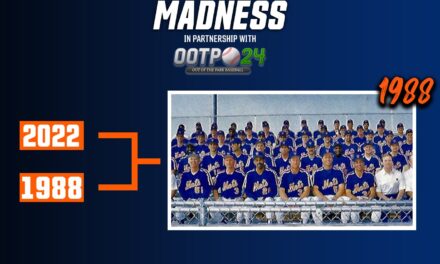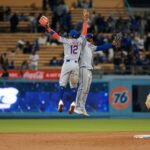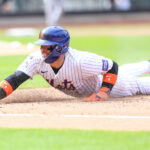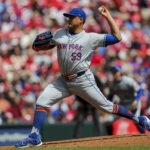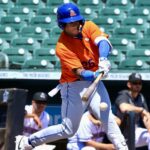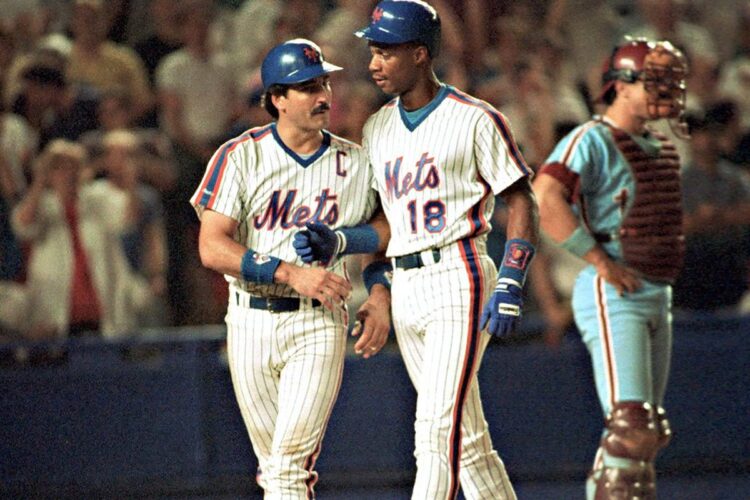
“I saw things I had never seen before,” Keith Hernandez said later.
Hernandez had hit for the cycle and it registered as pretty ordinary on the scale of events that took place at Atlanta-Fulton County Stadium.
What began on Independence Day evening and lasted until 3:55 a.m. on July 5 became a regular-season saga unlike any other. There were 29 runs, 46 hits, 37 left on base, 43 players, 14 pitchers, three blown saves, two rain delays, two ejections, the aforementioned cycle, a formal protest, and a game-tying home run by relief pitcher.
It finally ended after a total elapsed time of 8 hours and 15 minutes. Ron Darling put a period on perhaps the wackiest baseball chapter ever written with a strikeout, but the festivities weren’t done. The stadium still proceeded with the scheduled postgame fireworks. Residents nearby reportedly made panicked calls to police—some fearing this was the onset of nuclear war with the Soviet Union.
Things were wacky from the very start—and the conditions they played in were equally outrageous. Two hours and five minutes worth of stoppage due to precipitation (including a 90 minute hold to the start) plus a bad drainage system created standing water in the outfield. Base hits hydroplaned as they skidded through the grass. The game was halted for a second time in the third inning. Davey Johnson removed starter Dwight Gooden with a reliever but was disallowed a double-switch and thus challenged the ruling.
Despite being deprived of its ace, New York held a 7-4 lead in the bottom of the eighth. Jesse Orosco, nursing a sore shoulder, couldn’t shut the door, a theme that would afflict pitchers on both sides. Atlanta scored four times in its half of the eighth, including a three-run double by Dale Murphy. The Mets responded with a Lenny Dykstra RBI single off Bruce Sutter. Extra innings allowed Hernandez to complete his cycle in the 12th, but it took until the top of the 13th for New York to break the 8-8 tie, when Howard Johnson smashed a two-run homer. The Braves were one strike from defeat before Terry Harper answered. With a runner on, his drive to left field dinged the foul pole. Ten apiece.
Scoring took a break in the 14th, 15th, 16th, and 17th (when Darryl Strawberry and Johnson were tossed for arguing balls and strikes). The Mets broke through in the top of the 18th by way of Dykstra’s sacrifice fly. Tom Gorman was asked to hold the one-run advantage. He easily retired Gerald Perry and Harper on groundouts. Up came the pitcher’s spot. But Braves manager Eddie Haas had used up his pinch-hitting options.
The last hope was reliever Rick Camp—and it was a faint hope. Camp’s batting record was terrible, even by pitchers’ standards. He had a meager .060 average, with 83 strikeouts in 167 career at-bats. Gary Carter motioned the outfielders in from behind the plate. The game already entered the bizarre, but asking Camp to stave off defeat—much less hit a home run—was seemingly beyond comprehension.
Gorman got two quick strikes. Then Camp connected. As the ball goes in the air, Ray Knight throws his hands up in astonishment. Then as it goes over the fence, Danny Heep puts his hands over his head. Mets players, fans, announcers, teammates, and probably Camp himself—were in shock.
Unbelievably, it was tied at 11. And we still weren’t done with the craziness.
Camp assumed his normal role on the mound in the top of the 19th. What he had taken from the Mets, he gave away (and then some). Knight atoned for the 11 men he left on base by doubling in Carter (who caught all 305 pitches from Mets hurlers). The Mets tacked on and Darling came in to protect a 16-11 lead, only to watch the Braves put together one more rally. Harper’s two-out single drove in two and brought the tying run to the plate—Atlanta’s newest power threat, Rick Camp.
But all dramatics, like those who stuck around, had been exhausted. Camp fanned on four pitches to the relief of Darling’s teammates.
“Usually when you come into a game, especially to finish up a game,” Darling said on MLB Network in 2020, “you might get some chatter from the infield. You might get a ‘go get ’em, kid’ from the catcher or the first baseman. I got none of that. I was looking around the field and everyone was like ‘just please end this game.’


